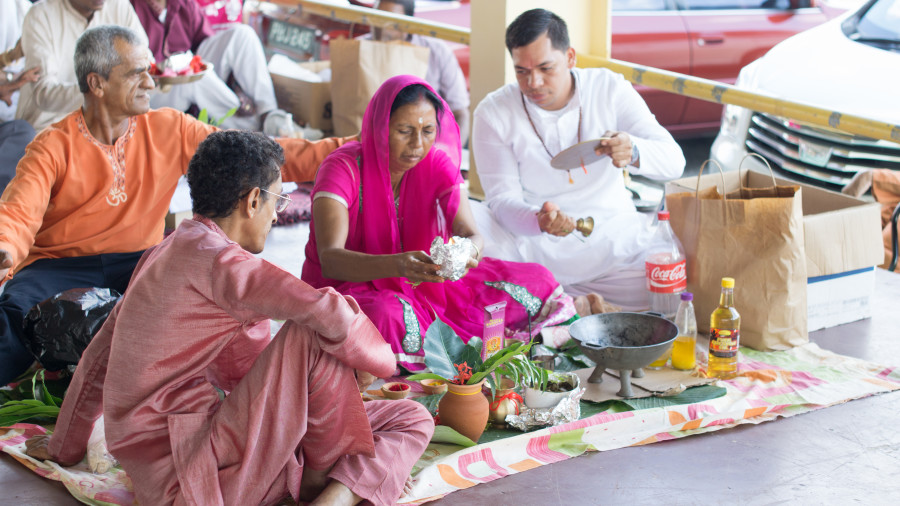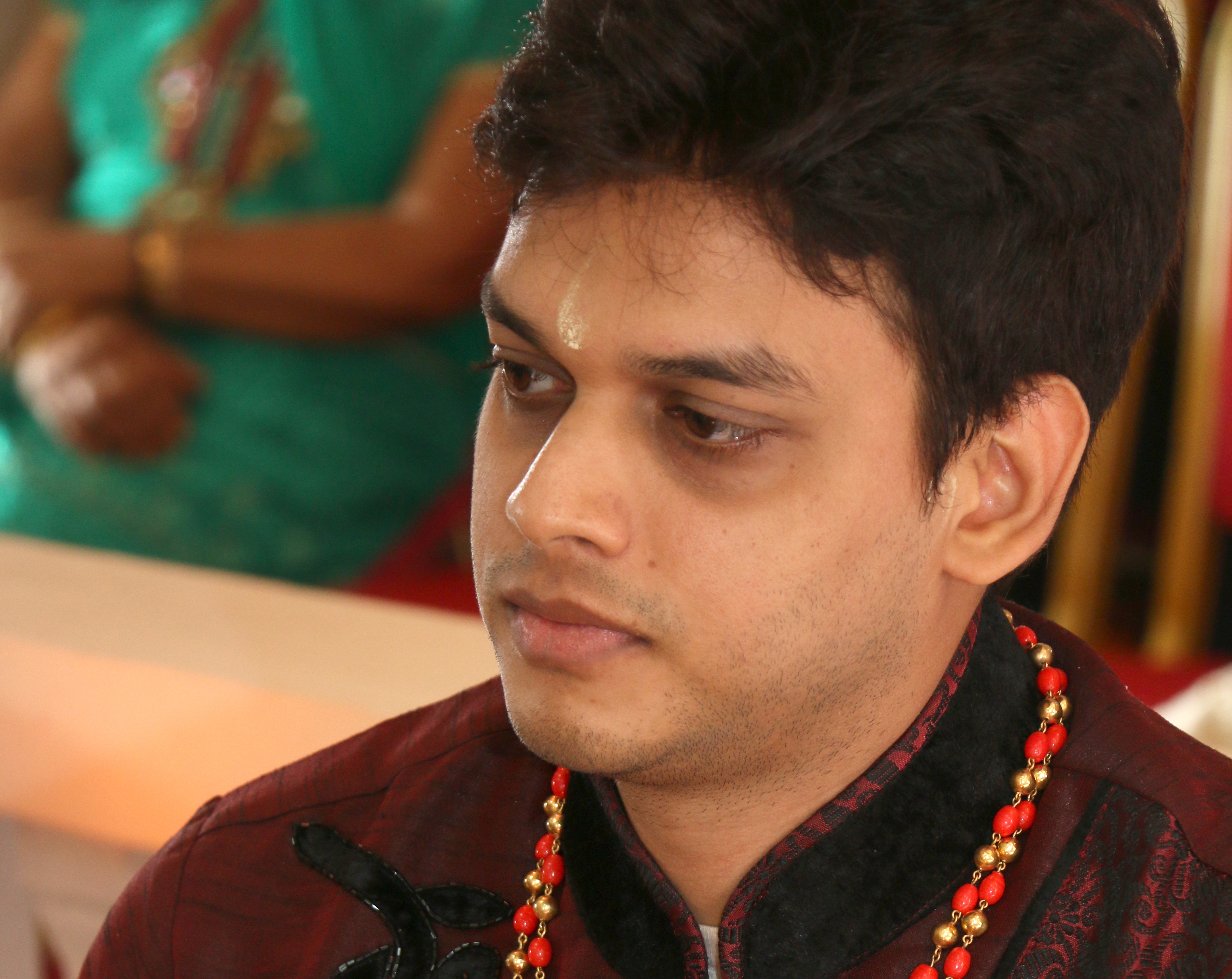The auspicious occasion of Nav Raatri and the month of Kaartik herald a time of intensifying the religious efforts that bring innumerable benefits to the sincere aspirant. This period presents many opportunities for engaging in discipline and sacrifice that leads us to transcend our negative qualities and identify with our higher Self. Fasting, mantra-recitation, havan and other forms of worship are some of the ways that one can make offerings to the Divine Being, build spirituality, become attuned to the inner Self and draw closer to self-realization. Some of the many benefits of engaging in havan are described below.
What is havan?
Havan is an age-old Hindu ritual in which offerings of ghee, gugul, sugar and other saamaagri are offered into the sacred fire as Sanskrit mantras are chanted.
Havan is one of the 10 positive virtues or niyam that are prescribed for the devotee whose goal is to reach the Divine Lord. It is also one way of performing Dev yagya, one of the five daily duties in Sanaatan Dharma.
Why should havan be performed?
Havan has a purifying effect on both the devotee who performs this sacrifice as well as the environment. By chanting mantras and making offerings to the Deities through the sacred fire (agni), one’s chakras are re-energised, which revitalises both mind and body. Positive thoughts, words and actions then pave the way for further success in our lives. The combined effects of the materials used in the havan, along with the mantra-recitation, purify the atmosphere. Negative energies are dispelled and a protective shield is built around the house where this ritual is performed. This induces peace, prosperity and good health, conditions which lead to clarity of thought, increased discernment and improved usage of mental faculties.
The process of bhoot shuddhi or purification of the tattwas or elements takes place within the devotee who performs havan, and transforms one’s thought patterns. Qualities of anger and irrational thinking are replaced by calm, tranquil and controlled attitudes. The individual acquires greater control of his life and wider scope for success in all activities.
When should havan be performed?
Ideally, this practice should be carried out daily. In every home, havan should be performed at least once per week by all members of the family. Early morning is most conducive for all religious actions as the atmosphere is filled with praan (energy). However, as this time may not suit the needs of all families, this spiritual practice may be conducted at a time that is best suited for the devotee.
How should havan be performed?
A complete guide on the preparations and performance of havan is provided in our publications, Devi, Ganesh and Soorya Upaasanaa.
The performance of havan, while essential in the spiritual evolution of every devotee, is also important in fostering family togetherness. Through the practice of mantra-recitation and the various activities involved in the physical preparations for havan, devotees develop a greater appreciation for the traditional religious practices of Sanaatan Dharma. Through this powerful sacrifice, one is protected and shielded from all negative elements.



